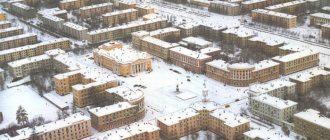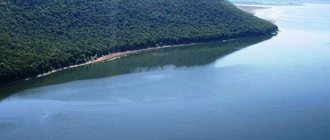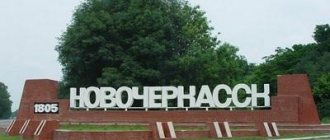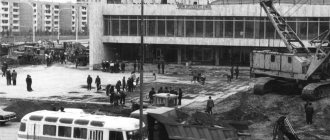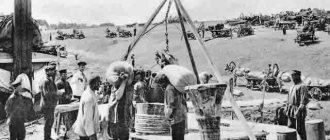City in Bashkortostan, Russia
| Kumertau Kumertau | |
| Town | |
| Other transcription(s) | |
| • Bashkir | Kumertau |
| Flag Coat of arms | |
| Location of Kumertau | |
| Kumertau Location of Kumertau Show map of Russia Kumertau Kumertau (Bashkortostan) Show map of Bashkortostan | |
| Coordinates: 52°46′N 55°47'E / 52.767°N Latitude 55.783°E / 52.767; 55.783Coordinates: 52°46′N 55°47'E / 52.767°N Latitude 55.783°E / 52.767; 55.783 | |
| A country | Russia |
| Federal subject | Bashkortostan |
| Based | 1948 |
| City status from | 1952 |
| Height | 310 m (1020 ft) |
| population (2010 Census)[1] | |
| • General | 62,851 |
| • Evaluate (2018)[2] | 60,164 (-4.3%) |
| • Classify | 253rd in 2010 |
| Administrative status | |
| • Subordinate | city of republican significance Kumertau[3] |
| • Capital from | city of republican significance Kumertau[3] |
| Municipal status | |
| • Urban district | Kumertau urban district[4] |
| • Capital from | Kumertau urban district[4] |
| Timezone | UTC + 5 (MSK + 2 [5]) |
| Postal code(s)[6] | 453300 |
| OKTMO I WOULD | 80723000001 |
Kumertau
(Russian: Kumertау; Bashkir: Күмертау) is a town in the Republic of Bashkortostan, Russia, located 250 kilometers (160 mi) from Ufa and 102 kilometers (63 mi) from Sterlitamak. Population: 62,851 (2010 Census);[1]65,003 (2002 Census);[7]64,260 (1989 Census).[8]
Kumertau on the map of Russia: geography, nature and climate
The city is located in the southern part of Bashkortostan, 250 kilometers south of the republican center - Ufa. It is located on the territory of the Verkhne-Babaevskoye deposit of the South Ural brown coal basin. Therefore, the life of the city, located in the forest-steppe zone, is closely connected with mining.
The climate type is temperate continental, with pronounced winter and summer periods. The Karagayka River flows through Kumertau, and there are also reservoirs - both small and round. A satellite map of Kumertau shows that the city, especially in its northern part, has enough green areas.
Sculpture "Miners"
The profession of a miner is special for residents of the city of Kumertau. After all, it was the coal miners and miners who determined the further development of the city and its appearance. They lived in difficult conditions, the work was difficult and responsible, but they coped with all the tasks.
Looking at the modern, developed city, one comes to the understanding that those miners did not try in vain. Respect for the work of coal miners was expressed in the sculptural composition “Miners”. The main idea of the composition is to connect the past and the present.
The beginning of the city is the miners who arrived, the present is the city as it became thanks to their work. On the sides there are figures of miners, symbols of endurance and fortitude, behind them there is the inscription “Dedicated to the founders of the city. Kumertau 1953".
Location: Lenin street.
Routes on the map of Kumertau. Transport infrastructure
Kumertau is part of an important transport junction - there are transport routes connecting the city with the Volga region, the Urals, Central Asia and Siberia. Ufa-Orenburg highway of republican significance runs here , which connects Bashkortostan with the Chelyabinsk and Orenburg regions. Also along the city, construction of a four-lane first category highway continues, which will connect the North-West of the country with Kazakhstan and western China.
Kumertau is also a railway station (the intersection of Vokzalnaya and Nakhimov streets), from which freight and passenger trains of various directions regularly depart.
Separately, mention should be made of the Vorotynovka airfield, which is capable of receiving helicopters and airplanes of almost all types.
Monument "MiG-17F"
Kumertau Machine-Building Plant is known for producing high-quality airplanes and helicopters. Initially, a stele with an airplane was installed in the city, then with a helicopter. The initiator of the construction of the stele “Dedicated to the builders of winged machines” with an airplane on it was the director of the machine-building plant, A.S. Palatnikov. The stele was placed in the Gagarin Park, its opening took place in 1985. The monument is a structure, 22 meters high, with a MiG-17F aircraft on a concrete pedestal.
Sights of Kumertau
There are many places in Kumertau that are of particular interest:
- Kumertau Museum of History and Local Lore , telling about the history and culture of the peoples living in this city.
- Monuments to the KA-26 helicopter, MiG-17F fighter, “Man-made disaster liquidators”.
- Sculptures by M.V. Lomonosov and Shakhtar .
- The park of culture and recreation , named after the first cosmonaut Yu.A. Gagarin.
- St. John the Baptist Cathedral Church.
Monument to military and labor glory
The place of memory of the events of the Great Patriotic War is located in the city of Kumertau in Victory Square on Mira Street. The foundation stone for the monument took place in 1975, and it was opened here in 1983.
The composition of the monument includes figures of a four-meter soldier and a worker, as a symbol of military and labor glory. And between them are high nine-meter banners, elegantly made, as if fluttering in the wind. Below is the “eternal flame” and the text on the pedestal: “No one is forgotten, nothing is forgotten 1941-1945.” The monument was made according to the design of the architect R. Sabitov and the artist B. Fuzeev.
Main streets of Kumertau
A map of Kumertau with streets allows you to get the following information:
- Shosseynaya Street, smoothly flowing from Babaevskaya Street, connects the main part of the city with the P-240 Ufa-Orenburg highway. There are no important infrastructure facilities, other than a gas station and shops, located along it. Passes through a sect of private residential buildings.
- Okruzhnaya Street , located in the central part of Kumertau, connects two other streets - Vokzalnaya and Lomonosova. Along it there are multi-storey residential buildings, as well as green areas. A railway line runs parallel to the street.
- Vokzalnaya Street got its name because of the Kumertau railway station located here. There are also other important organizations here - the Gorodskaya electrical substation, the Republican Polytechnic Lyceum-Boarding School, as well as a number of residential buildings (private and multi-storey) and large shops.
- Babaevskaya Street is located just east of the central part of the city. Here is the bus station of the city of Kumertau, as well as park areas with monuments, shops, a shopping center, and office premises.
- Promyshlennaya Street, as you might guess from the name, runs among large enterprises in Kumertau. It runs from Babaevskaya Street to Karl Marx Street.
- Energetikov Street is located between Karl Marx and Promyshlennaya streets. As the map of Kumertau with houses shows, the street does not include anything notable except residential buildings and factory warehouses.
Obelisk “In Memory of the Youth of Our Fathers”
The name of the obelisk reflects the history of the city of Kumertau. It was built in the post-war period, by the hands of veterans returning from the front. The fathers, founders of the city, its workers and first settlers - all of them had their youth during the war.
Younger generations should always remember this. Especially for this, an obelisk “In Memory of the Youth of Our Fathers” was erected in the park on Lenin Street. The author is A. Sokolov. Initially, the stele had a steel bas-relief of a warrior with the letters Komsomol. A few years later it was replaced with a punch with portraits of Komsomol members printed on it.
Economy and industry Kumertau
Previously, the main direction of industrial development in the city was associated with minerals, deposits of which were found in these places. However, today the economic potential of Kumertau falls on the shoulders of other areas of production.
One of the largest enterprises in the city is the Kumertau Aviation Production Enterprise. Also a significant role is played by industrial enterprises engaged in construction (Acropol LLC), repair of equipment for gas and oil industry enterprises (Yuzhural-Oil LLC), as well as numerous food industry enterprises.
In the near future, it is planned to develop such areas as sewing clothes, the production of combine harvesters and baking and confectionery production.
We lost one Kumertau in three years: the population of Bashkiria became less than 4 million
The depopulation of the population of Bashkiria is a strategic threat to the development of the republic. The decline in numbers has recently occurred exponentially. If in 2016 the number of residents decreased by 634 people, then in 2022 - by 24.4 thousand people.
The situation is especially alarming in rural areas. For example, in the Bizhbulyak, Buraevsky, Kaltasinsky, and Askinsky districts, the population has decreased by 19-20% since 2011. Taking into account the accelerating rate of population depopulation, it is quite possible that in 25-30 years, 1.5-2 thousand pensioners (10% of the existing population) will live in these areas.
In September, the regional government approved a “road map” to increase the population of the republic. There is hope that negative demographic trends will be overcome.
Prufy.rf expert Rustem Shayakhmetov analyzed the document. According to him, he got the impression that the government officials who developed this map received higher education without primary education, because they do not know arithmetic at all. He believes that they have no understanding and knowledge about the existing demographic processes in the republic. The economist's analysis is in our material.
Bloopers at every turn
The following indicators are approved by the road map.
Firstly, the population as of January 1, 2021 is incorrectly indicated - 4003.2 thousand people
.
According to Bashkortostanstat data, the population as of January 1, 2022 was 4013.8 thousand people
. And there are quite a lot of such mistakes in the road map. It is regrettable that such a “light” attitude towards the regulatory document, which should determine the main directions of demographic development of Bashkortostan.
According to the mortality rates approved by the road map, the number of deaths in 2026 will be 54.4 thousand people, while the natural population increase is determined at 1.6 thousand people. For this, it is necessary that 56 thousand children are born in Bashkiria in 2026. To give you an idea: 41 thousand children were born in 2022. That is, to fulfill the indicators of the “road map” it is necessary to increase the existing birth rate by 1.4 times
. Considering that the birth rate has fallen by almost 1.5 times over the past five years, the task, frankly speaking, is difficult to achieve.
The birth of 56 thousand children is the birth rate in 2016, when the total fertility rate (the number of children born to one woman during the entire reproductive period) was 1.86. And in the “road map” this indicator is indicated at 1.548 – 1.2 times less. This circumstance is evidence of the unattainability of the goals set. What is this? Incompetence? Negligence? Or deliberate misleading of the population of the republic?
Without “second and subsequent” the situation cannot be reversed
An important factor in reducing the birth rate is the decrease in the number of women of childbearing age. In Bashkiria over the past 5 years there have been 51 thousand fewer of them.
It should be taken into account that over 80% of children are given birth to women aged 20-34 years, and since 2015 there have been 79 thousand fewer of them. By 2026, taking into account the existing age structure, there will be another 65 thousand fewer (320 thousand women).
If the total fertility rate in 2026 in Bashkiria is 1.548 (the “road map” indicator), then about 35.5 thousand children will be born, and the mortality rate planned by the “road map” will be 54.4 thousand people, that is, the natural population decline will be at the level last year – about 19 thousand people. If we talk about the current situation, then in January-July 2022 the natural decline in the population of Bashkortostan amounted to 10,650 people.
It should be noted that the age structure of women with active reproductive behavior has changed dramatically. If in 2015 there were approximately the same number of women aged 20-29 years and those aged 30-39 years, now the situation is completely different: women aged 30-39 years are one and a half times more than women aged 20-29 years. This poses new challenges for the republic, because women after 30 years of age give birth to a second and subsequent child. And additional effective measures to stimulate the birth of second and subsequent children are not proposed in the “road map”. And, as I understand it, the government does not intend to introduce them.
They keep leaving. And that's unlikely to change
There is little belief in the possibility of changing migration processes. The main reason for changing residence in Russia is work. A sociological study by the research center of the recruiting portal Superjob.ru, conducted in September of this year, revealed that only 36% of Ufa residents consider Ufa the best city for their career growth
, and 38% of residents disagreed with this. Just three years ago, in 2018, Ufa was considered the best city for a career by 49% of Ufa residents. This study confirms the high readiness of Ufa residents to change their place of residence, which shapes the active migration behavior of residents of the capital of Bashkiria, not to mention other settlements where there are even fewer opportunities for self-realization. The annual creation of 1,200 new jobs declared by the road map is clearly not enough, since many industries are experiencing job losses.
Over the past 5 years, according to Rosstat, there has been a reduction in the number of workers in the republic. Every year on average by 20 thousand people. Particularly active release occurs in the agro-industrial complex, a little better in other industries. This also applies to large chemical companies. Thus, in the first half of 2021, the number of employees of the Bashkir Soda Company decreased by 365 people
.
New additional jobs (1,200 places) created according to the “road map” replace only 6% of the declining job vacancies, which is clearly not enough. Dissatisfaction with the prospects for career development shapes the active migration behavior of the population. The active part of the residents is leaving. This primarily concerns young people. And this begins with the choice of place of study by school graduates.
Healthcare is being optimized, but mortality is rising
The increase in mortality, which occurred largely due to the “optimization” successfully carried out by the decorated Minister of Health Maxim Zabelin, does not improve the situation. In many rural areas, a large number of hospitals and maternity hospitals have closed. Sometimes a woman in labor needs to travel over 100 km to get to the maternity hospital.
Sculpture of Lomonosov M.V.
Mikhail Vasilyevich Lomonosov is a brilliant Russian scientist, known throughout the world. He had extensive knowledge and expressed himself in many scientific disciplines, both natural sciences and the humanities, including chemistry, physics, astronomy, geography, geology, history and many others. But he lived in the 18th century, and the city of Kumertau appeared in 1953.
So what then connects Mikhail Vasilyevich with the city of Kumertau? Here's what: it was Lomonosov who was one of the first in Russia to create a model of a helicopter and propose a rotor rotation scheme. And the city of Kumertau is a center of mechanical engineering and the creation of helicopters. Therefore, in the early 60s, a sculpture of Lomonosov appeared in the city, as a sign of respect to the scientist.
Monument to the Liquidators of the Technogenic Disaster
The events at the Chernobyl nuclear power plant horrified all residents of our country, without exception. Volunteers from all over Russia rushed to help, and the brave Kumertau residents also went there. They helped eliminate the disaster, not sparing their lives and health.
In memory of them, a monument was unveiled, calling to always remember those dead people and glorify the names of the survivors. The marble stele is made in the form of a soldier who covers a nuclear reactor with his palms. The initiator of the creation of the monument was the chairman of the Chernobyl Union S.S. Sauytov. The monument was unveiled in 2006.
